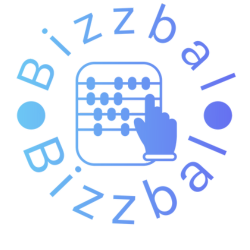When we hear the word "accounting," we often think of spreadsheets, taxes, and balance sheets.
But the story of accounting stretches back thousands of years and is deeply tied to the rise of
civilizations, trade, and commerce. Let’s take a journey through the fascinating history of
accounting — from ancient clay tablets to today’s global financial systems.
Early Beginnings: Accounting in Ancient Civilizations :
Accounting is as old as civilization itself. The earliest evidence of accounting practices dates back
more than 7,000 years to the ancient region of Mesopotamia, in what is now Iraq. Merchants
and rulers there used clay tablets to record the exchange of goods like grain, cattle, and silver.
These simple records were essential for tracking inventories and ensuring that debts and
payments were properly managed.
Other ancient civilizations, including the Egyptians and Babylonians, also developed accounting
systems. In Egypt, scribes kept detailed records to manage agricultural harvests and labor for
large projects like the building of the pyramids. In Babylon, financial transactions, loans, and
interest calculations were recorded on cuneiform tablets, offering some of the earliest examples
of documented business agreements.
These early accounting practices were primarily concerned with stewardship — making sure that
resources were properly managed on behalf of kings, priests, and merchants.
The Roman Contribution: Advancing Record-Keeping :
The Roman Empire brought further sophistication to accounting. Roman administrators
meticulously recorded taxes, property holdings, military expenditures, and other public
accounts. They developed complex financial systems to manage the vast resources of their
empire. Wealthy Roman households even kept detailed records of their personal finances.
The emphasis in Roman accounting was on transparency and control — principles that remain
fundamental to accounting today.
A Revolutionary Leap: The Birth of Double-Entry Bookkeeping:
One of the most important moments in the history of accounting came in the late Middle Ages,
during the commercial boom in Northern Italy. As trade expanded and businesses grew larger,
merchants needed more reliable methods to keep track of their complex transactions.
Around this time, a breakthrough occurred: double-entry bookkeeping. In this system, every
transaction is recorded in two accounts — a debit in one and a credit in another — ensuring that
the books always stay balanced.
The double-entry method was first systematically described by Luca Pacioli, a Franciscan friar
and mathematician, in his 1494 book Summa de Arithmetica, Geometria, Proportioni et
Proportionalita. While he didn’t invent the system, Pacioli's clear explanation helped spread
double-entry bookkeeping across Europe. Because of this contribution, he is often called the
"Father of Accounting."
Double-entry bookkeeping revolutionized commerce by making it easier to track profits, losses,
assets, and liabilities — laying the groundwork for modern accounting practices.
The Industrial Revolution and the Rise of Professional Accounting :
Fast-forward to the 18th and 19th centuries, and we see another major turning point: the
Industrial Revolution. As factories, railways, and large-scale enterprises emerged, the need for
professional accountants grew rapidly. Business owners required accurate financial information
to make investment decisions, manage costs, and measure success.
This period also saw the establishment of professional accounting organizations, such as the
Institute of Chartered Accountants in England and Wales (founded in 1880). Accounting
became recognized not just as a practical necessity but as a respected profession with its own
ethical standards and educational requirements.
Accounting in the Modern Era: Global Standards and Technology :
Today, accounting is a global language of business. Systems like GAAP (Generally Accepted
Accounting Principles) in the U.S. and IFRS (International Financial Reporting Standards)
worldwide help ensure that financial statements are consistent, transparent, and comparable
across countries and industries.
Technology has transformed the field as well. Software like QuickBooks, SAP, and cloud-based
platforms have automated many accounting tasks, making the work faster and more accurate.
Artificial intelligence and blockchain technologies are poised to further change how accountants
record, audit, and verify financial transactions.
Conclusion: A Field Built on Trust and Innovation
From simple clay tablets to AI-powered audits, accounting has always been about trust —
ensuring that information about money and resources is reliable. Over the centuries, accounting
evolved alongside the economy, adapting to new challenges and opportunities.
Understanding the history of accounting gives us a greater appreciation for its role not just in
business, but in the development of human civilization itself. As technology continues to
reshape the field, the core mission of accounting — to record, report, and ensure financial truth
— remains more important than ever.
